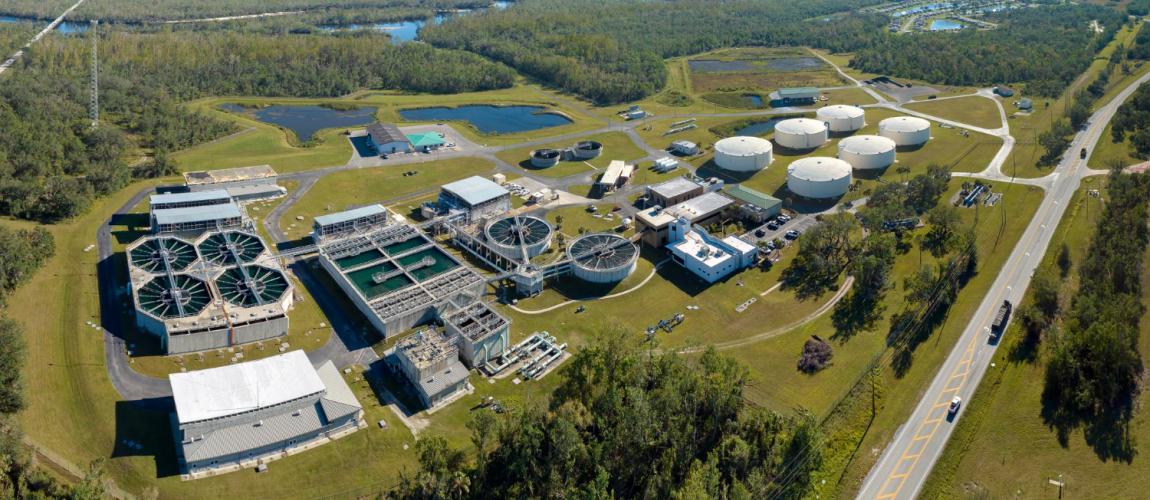Integral Treatment of Wastewater and Bio-Solids, Municipality of Saltillo, Mexico

Photo Credit: Image by Freepik
On this page: A case study on Integral Treatment of Wastewater and Bio-Solids, Municipality of Saltillo, Mexico. Find more at the Municipal Public-Private Partnership Framework - Project Summaries section for brief summaries of around 100 projects from around the world, examples of successes and challenges, as well as innovative ideas on solutions, or visit the Guidelines to Implementing Asset Recycling Transactions Section Overview and Content Outline, or download Full Version of the Report.
Project Summary: Background The municipality of Saltillo was not complying with environmental laws on wastewater and was discharging its non-treated wastewater into regional bodies of water. In addition to incurring substantial fines for the municipality, the untreated discharge was contaminating local waters and presenting a growing health hazard for the surrounding inhabitants. Accordingly, the construction of appropriate wastewater infrastructure was urgently needed. Project Structure The resulting PPP project is a 20-year concession for the design, construction, operation, and maintenance of a primary wastewater treatment plant with the capacity to treat 1,200 liters of wastewater per second, as well as an auxiliary plant with the capacity to treat 70 liters per second. In addition to the plants, the project entails construction of four emitters for the conduction of wastewater to the primary plant and a network of treated water for supply to five sites within the municipality of Saltillo. At the end of the 20-year contract, the developer would transfer the new infrastructure and its operation to the municipality. The project was awarded to Frisco S.A de C.V. through a public national bidding process in which 16 companies competed. IDEAL Saneamiento de Saltillo, S. A. de C. V., the special purpose vehicle created for this project, began construction in April 2006 and operations on April 2008. IDEAL assumed the risks related to the design, financing, construction, commissioning, and operation of the project. It also assumed the permitting and licensing risks. Political, demand and inflation risks were retained by the municipality. The municipality of Saltillo was responsible for establishing a payment guarantee in benefit of IDEAL. To establish the guarantee, the municipality obtained a current-account credit facility through Mexico’s National Bank of Public Works and Service. In order to access such a facility, the municipality processed the financial support of Trust (fideicomiso) No. 1902 called infrastructure investment fund (Fondo de Inversión en Infraestructura) by the National Bank of Public Works and Services. This trust is a source of direct and alternative payments for the administration of the resources allocated to the project. The municipality, as the project’s primary source of funding, pays into the Fideicomiso, which in turn pays IDEAL a monthly tariff that comprises three parts: a) investment fixed costs; b) operation fixed costs; and c) operation variable costs. The tariff is contingent on the quantity and quality of water treated at each of the plants. The estimated investment for the project was MXN 436 million (USD 22 million). Of this amount, 29.4 percent was contributed by the Infrastructure Investment Fund; 50.8 percent was debt; and the remaining 19.8 percent was the private investor’s equity contribution.1 Lessons Learned Reports indicate that in 2016 the wastewater treatment plant started operating a system for electric and thermic energy co-generation, which will allow the plant to stop emitting greenhouse gasses into the atmosphere, and thereby produce the energy needed to run the plant.2 Furthermore, it is reported that the plant will start selling treated water (between 1 to 6 liters per second) to three companies that have expressed interest by the second half of 2019.3 It has also been reported that the project has benefited agricultural works in the region, as it enabled a change from forage crops to vegetables, which have a higher commercial value. The project further increased the commercial value of the previously polluted lands, as the project will help to decrease significantly or eliminate discharges that were resulting in unpleasant odors and harmful environmental impacts. Footnote 1: Case sources: http:// www.cca.org.mx/ ps/funcionarios/ muniapp/descargas/ Documentos_de_apoyo/ informaciontematica/ capp/Saneamiento_ Integral_Aguas.pdf Accessed on April 1, 2019. http://www.contraloria delpoderlegislativo.gob. mx/pdf/Cursos/A_P_P. pdf Accessed on April 1, 2019. Footnote 2: http://www. eldiariodecoahuila.com. mx/locales/2016/8/3/ arranca-cogeneracionenergia- electricatermica- plantatratadora- 594631.html. Accessed on April 1, 2019. Footnote 3: https://vanguardia. com.mx/articulo/ finalmente-sera-util-laplanta- tratadora-desaltillo- venderan-elagua- a-empresas-deramos- arizpe Accessed April 5, 2019.
This is a new section of the PPPLRC website and is currently in draft form. Your feedback is welcome: If you would like to comment on the content of this section of the website or if you have suggestions for links or materials that could be included please contact us at ppp@worldbank.org.
To find more, visit the The Municipal Public-Private Partnership Framework - Project Summaries section, the Guidelines to Implementing Asset Recycling Transactions Section Overview and Content Outline, or download Full Version of the Report.
Updated: March 9, 2024